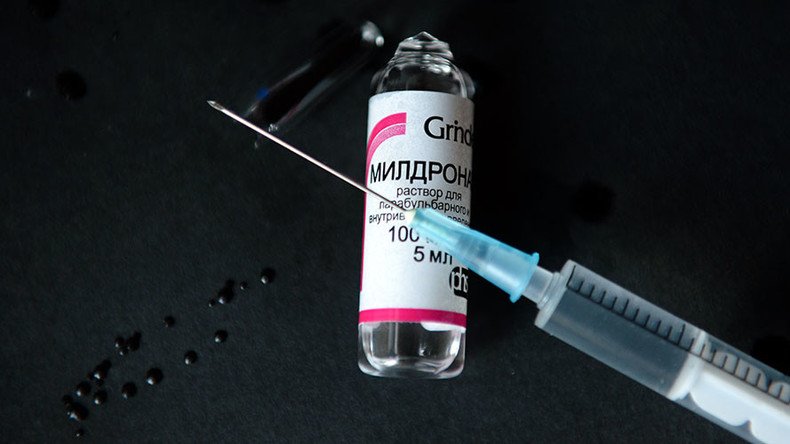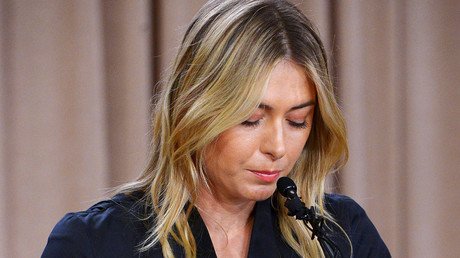WADA backs down in meldonium scandal, dozens of Russians could be free to compete

The World Anti-Doping Agency (WADA) may have offered some of Russia’s top sportsmen and women a lifeline, after saying they will offer an amnesty for certain athletes who tested positive for the banned drug meldonium.
WADA says athletes who are found to have less than 1 mcg of meldonium in doping tests carried out before March 1, 2016, could be allowed to compete again. Tennis player Maria Sharapova and swimmer Yulia Efimova were two of around 40 Russian athletes who failed drug tests for meldonium.
“If the anti-doping organization finds that the athlete could not reasonably have known or suspected that the substance would still be present in his/her body on or after 1 January 2016, then a finding of no fault or negligence may be made,” a press release from WADA stated.
However, WADA said this was not an “amnesty,” rather it was an acceptance that organizations should take occurrences on a case by case basis.
"In no way does this serve as an 'amnesty' for athletes that are asserted to have committed an anti-doping rule violation," WADA spokesman Ben Nichols told AP in an email. "Rather, it serves as guidance for how anti-doping organizations should assess the particular circumstances of each individual case under their jurisdiction."
In the statement, WADA admitted that more tests need to be carried out to find out how long meldonium can remain in the blood stream, a point which has been argued by Russian Sports Minister Vitali Mutko.
“In the case of meldonium, there is currently a lack of clear scientific information on excretion times. For this reason, a hearing panel might justifiably find (unless there is specific evidence to the contrary) that an athlete who has established, on the balance of probabilities, that he or she ingested meldonium before 1 January 2016, could not reasonably have known or suspected the meldonium would still be present in his or her body on or after 1 January 2016. In these circumstances, WADA considers there may be grounds for no fault or negligence on the part of the athlete,” the statement continued.
WADA can confirm there have been 172 Adverse Analytical Findings (positives) for Meldonium since it was banned on 1st January 2016 #WADA
— WADA (@wada_ama) April 13, 2016
Athletes around the world were told meldonium was to be added to WADA’s list of banned substances in September 2015, while the ban came into effect on January 1, 2016.
One of those who is set to gain from WADA’s decision is Sharapova. She said she had been taking meldonium for more than a decade because of health problems and was provisionally suspended by the International Tennis Federation (ITF) in March after announcing she had failed a test at the Australian Open in Melbourne.
However, the Russian Tennis Federation President Shamil Tarpishchev said Sharapova’s ban could be addressed in a meeting with ITF head David Haggerty later this month.
“The situation with Sharapova could be resolved after April 21 when we meet with the head of the international federation. After that all should be become clear. It is too early to talk about Sharapova competing at the Olympic Games,” TASS quoted Tarpishchev as saying, as cited by Reuters.
The Russian Sports Ministry said it was happy that WADA had been flexible regarding meldonium in a statement on its website, as cited by TASS.
“The Russian Sports Ministry supports and welcomes the decision made by WADA because it has showed a willingness to understand the situation, rather than stick to the rulebook. They were ready to study how long it would take for meldonium to be eliminated from the body of an athlete. WADA has sent recommendations to all the anti-doping organizations, which will allow them to make fair decisions based on the actual guilt of an athlete. In doing so, WADA has demonstrated impartiality and being objective in the fight against doping.”
The five-time speed skating world champion Pavel Kulizhnikov and the 2014 Olympic short track gold medalist Semen Elistratov are two athletes who are set to benefit from WADA’s ruling, and the president of the Russian Speed Skating Union Aleksey Kravtsov told R-Sport that the pair should be allowed to compete again.
“These sportsmen should be allowed to fall under the amnesty due to the amount found in their doping tests. They were not guilty, as we had been saying earlier. This is of course good news, but there is still a bit of a cloud hanging over all of this,” he said.














